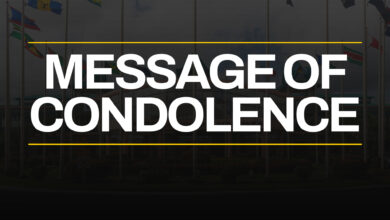PORT OF SPAIN, Trinidad and Tobago, Guardian – The Caribbean Basin Security Initiative is expected to be a major topic at today’s historic meeting in Port-of-Spain between United States Vice-President Joe Biden and presidents, prime ministers and other government officials from the Caribbean region. This subject is of critical concern for T&T and the rest of the Caribbean. Biden’s visit—his second stop on a six-day whirlwind tour—follows closely on Prime Minister Kamla Persad-Bissessar’s visit to Washington last month. On that trip, in her capacity as the incoming chairman of Caricom, Persad-Bissessar raised several regional security concerns, including the need for assistance in the fight against the illegal drug trade and the impact of criminal deportations from the US when she met with US Deputy Secretary of State William Burns. While information released ahead of Mr Biden’s visit also listed energy and economic integration as areas of focus, the success of any initiatives in these areas depends on the establishment of a strong security infrastructure. Unfortunately, that goal has been elusive since it depends so heavily on each country’s level of development and ability to afford it. For the US, pursuing security capacity-building measures in this region is a priority. The Caribbean has been recognised since April 2001 as America’s “third border” and post 9/11 threats have increased considerably and become more complex. More decisive and superior responses are now essential. The wider region of Latin America and the Caribbean has long been a transhipment corridor for the illegal narcotics trade. In recent years, global criminal networks have introduced some unwelcome developments in a region where transit, production and consumer countries exist in very close geographic proximity. These challenges have to be met with a multi-pronged approach that addresses drug trafficking as well as consumption. That can only be possible if there is deepening of co-operation and renewing of the commitment to eradicate this from the Americas. Since most countries in the region lack the technical and financial resources to deal with major security threats which have the potential to erode political stability and devastate already fragile economies, support from the US and other partner countries is crucial. Add to this the fact that the Caribbean’s vulnerability has been exacerbated in recent years by severe economic hardships from the recent global recession and it is clear that today’s meeting could have far-reaching implications for all involved. Recent foreign trips by President Barack Obama and Vice-President Biden have focused on firming up relationships with countries in this part of the hemisphere and strong signals have been sent that Obama’s second term will be about ramping up US engagement to promote a hemisphere that’s “middle class, secure and democratic.” There is already strong US-Caribbean co-operation on energy and the environment, and regional leaders have already made it clear that citizen security is high on their agendas. Today, therefore, the expected outcome is strengthening of counter-narcotics and law-enforcement relationships with the clear understanding that real progress requires shared responsibility and shared action.
News Letter
Subscribe to our mailing list to get the new updates!
Check Also
Close
-
CARICOM Energy Month 2025 Webinar Series Kicks Off!
November 5, 2025





